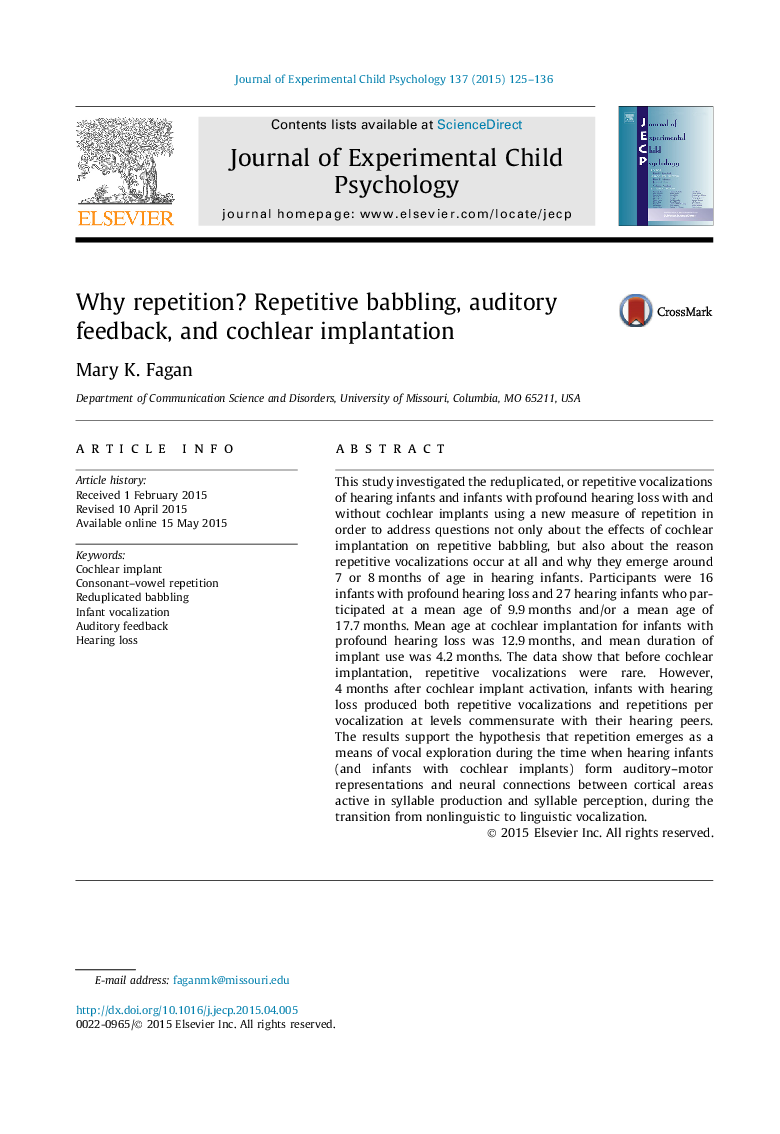| Article ID | Journal | Published Year | Pages | File Type |
|---|---|---|---|---|
| 7275050 | Journal of Experimental Child Psychology | 2015 | 12 Pages |
Abstract
This study investigated the reduplicated, or repetitive vocalizations of hearing infants and infants with profound hearing loss with and without cochlear implants using a new measure of repetition in order to address questions not only about the effects of cochlear implantation on repetitive babbling, but also about the reason repetitive vocalizations occur at all and why they emerge around 7 or 8Â months of age in hearing infants. Participants were 16 infants with profound hearing loss and 27 hearing infants who participated at a mean age of 9.9Â months and/or a mean age of 17.7Â months. Mean age at cochlear implantation for infants with profound hearing loss was 12.9Â months, and mean duration of implant use was 4.2Â months. The data show that before cochlear implantation, repetitive vocalizations were rare. However, 4Â months after cochlear implant activation, infants with hearing loss produced both repetitive vocalizations and repetitions per vocalization at levels commensurate with their hearing peers. The results support the hypothesis that repetition emerges as a means of vocal exploration during the time when hearing infants (and infants with cochlear implants) form auditory-motor representations and neural connections between cortical areas active in syllable production and syllable perception, during the transition from nonlinguistic to linguistic vocalization.
Related Topics
Social Sciences and Humanities
Psychology
Developmental and Educational Psychology
Authors
Mary K. Fagan,
